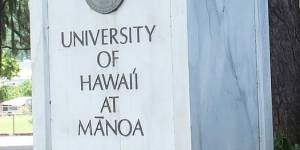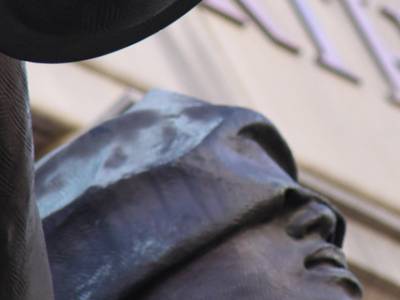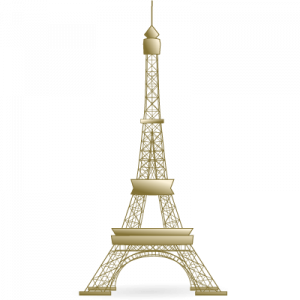(3) An LL.M. degree shall be satisfactory to qualify an applicant otherwise meeting the requirements of subsections (b)(1)(ii) or (b)(2) to take the New York State bar examination provided the following requirements are met:
(i) the program shall consist of a minimum of 24 semester hours of credit (or the equivalent thereof, if the law school is on an academic schedule other than a conventional semester system) which, except as otherwise permitted herein, shall be in classroom courses at the law school in substantive and procedural law and professional skills; and
(ii) a minimum of 700 minutes of instruction time, exclusive of examination time, must be required for the granting of one semester of credit; and
(iii) the program shall include a period of instruction consisting of no fewer than two semesters of at least 13 calendar weeks each, or the equivalent thereof, exclusive of reading periods, examinations and breaks, and shall not be completed exclusively during summer semesters, but a maximum of four semester hours of credit may be earned in courses completed during summer semesters; and
(iv) the program shall be completed within 24 months of matriculation; and
(v) all coursework for the program shall be completed at the campus of an approved law school in the United States, except as otherwise expressly permitted by subdivision (b)(3)(vii); and
(vi) the program completed by applicant shall include:
(a) a minimum of two semester hours of credit in the history, goals, instruction, value, rules and responsibilities of the United States legal profession and its members; and
(b) a minimum of two semester hours of credit in legal research, writing and analysis, which may not be satisfied by a research and writing requirement in a substantive law course; and
(c) a minimum of two semester hours of credit in American legal studies, the American legal system or a similar course designed to introduce students to distinctive aspects and/or fundamental principles of United States law, which may be satisfied by a course in United States constitutional law or United States or state civil procedure; credit earned in such course in excess of the required two semester hours of credit may be applied in satisfaction of the requirement of subdivision (b)(3)(vi)(d); and
(d) a minimum of six semester hours of credit in other courses in subjects tested on the New York State bar examination, where a principal focus of the courses includes material contained in the Content Outline for the New York State bar examination published by the New York State Board of Law Examiners.
(vii) The program completed by applicant may include:
(a) a maximum of four semester hours of credit in clinical courses, provided (1) the clinical course includes a classroom instructional component in order to insure contemporaneous discussion, review and evaluation of the clinical experience; (2) the clinical work is done under the direct supervision of a member of the law school faculty or instructional staff whose primary professional employment is with the law school; and (3) the time and effort required and anticipated educational benefit are commensurate with the credit awarded; and
(b) a maximum of six semester hours of credit in other courses related to legal training taught by members of the faculty of the law school or of the university with which the law school is affiliated, or taught by members of the faculty of any university or college with which the law school offers a joint degree program, provided such courses must be completed at the campus of such university or college in the United States.
(viii) No credit shall be allowed for correspondence courses, on-line courses, courses offered on DVD or other media, or other distance learning courses.
(c) Proof required. The applicant shall submit to the New York State Board of Law Examiners such proof of compliance with the provisions of this section as the board may require.
(d) Effective date for implementation. The provisions of existing Rule 520.6 shall continue to apply to those applicants applying to take a bar examination prior to the July 2013 bar examination, except that the requirements of subdivisions (b)(3)(iii), (v) and (viii) are effective immediately. All other provisions of this amended Rule shall first apply to programs commencing during the 2012-13 academic year and to applicants applying to take the July 2013 bar examination, subject to the saving clause of Rule 520.1(b).
New rules for NY Bar Exam (LLM)
Posted May 12, 2011 13:33
(i) the program shall consist of a minimum of 24 semester hours of credit (or the equivalent thereof, if the law school is on an academic schedule other than a conventional semester system) which, except as otherwise permitted herein, shall be in classroom courses at the law school in substantive and procedural law and professional skills; and
(ii) a minimum of 700 minutes of instruction time, exclusive of examination time, must be required for the granting of one semester of credit; and
(iii) the program shall include a period of instruction consisting of no fewer than two semesters of at least 13 calendar weeks each, or the equivalent thereof, exclusive of reading periods, examinations and breaks, and shall not be completed exclusively during summer semesters, but a maximum of four semester hours of credit may be earned in courses completed during summer semesters; and
(iv) the program shall be completed within 24 months of matriculation; and
(v) all coursework for the program shall be completed at the campus of an approved law school in the United States, except as otherwise expressly permitted by subdivision (b)(3)(vii); and
(vi) the program completed by applicant shall include:
(a) a minimum of two semester hours of credit in the history, goals, instruction, value, rules and responsibilities of the United States legal profession and its members; and
(b) a minimum of two semester hours of credit in legal research, writing and analysis, which may not be satisfied by a research and writing requirement in a substantive law course; and
(c) a minimum of two semester hours of credit in American legal studies, the American legal system or a similar course designed to introduce students to distinctive aspects and/or fundamental principles of United States law, which may be satisfied by a course in United States constitutional law or United States or state civil procedure; credit earned in such course in excess of the required two semester hours of credit may be applied in satisfaction of the requirement of subdivision (b)(3)(vi)(d); and
(d) a minimum of six semester hours of credit in other courses in subjects tested on the New York State bar examination, where a principal focus of the courses includes material contained in the Content Outline for the New York State bar examination published by the New York State Board of Law Examiners.
(vii) The program completed by applicant may include:
(a) a maximum of four semester hours of credit in clinical courses, provided (1) the clinical course includes a classroom instructional component in order to insure contemporaneous discussion, review and evaluation of the clinical experience; (2) the clinical work is done under the direct supervision of a member of the law school faculty or instructional staff whose primary professional employment is with the law school; and (3) the time and effort required and anticipated educational benefit are commensurate with the credit awarded; and
(b) a maximum of six semester hours of credit in other courses related to legal training taught by members of the faculty of the law school or of the university with which the law school is affiliated, or taught by members of the faculty of any university or college with which the law school offers a joint degree program, provided such courses must be completed at the campus of such university or college in the United States.
(viii) No credit shall be allowed for correspondence courses, on-line courses, courses offered on DVD or other media, or other distance learning courses.
(c) Proof required. The applicant shall submit to the New York State Board of Law Examiners such proof of compliance with the provisions of this section as the board may require.
(d) Effective date for implementation. The provisions of existing Rule 520.6 shall continue to apply to those applicants applying to take a bar examination prior to the July 2013 bar examination, except that the requirements of subdivisions (b)(3)(iii), (v) and (viii) are effective immediately. All other provisions of this amended Rule shall first apply to programs commencing during the 2012-13 academic year and to applicants applying to take the July 2013 bar examination, subject to the saving clause of Rule 520.1(b).
Posted May 13, 2011 10:32
Terrible news.
Posted May 13, 2011 10:54
Posted May 13, 2011 17:11
I think it may mean that LLM students are going to have less freedom to formulate their course schedule.
However, I have a question: according to 520 (d), are 2011-2012 LL.M. students still eligible to sit for NY Bar Exam by completing a 20-credit program because the existing Rule 520.6 shall continue to apply to those applicants applying to take a bar examination prior to the July 2013 bar examination?
However, I have a question: according to 520 (d), are 2011-2012 LL.M. students still eligible to sit for NY Bar Exam by completing a 20-credit program because the existing Rule 520.6 shall continue to apply to those applicants applying to take a bar examination prior to the July 2013 bar examination?
Posted May 16, 2011 14:21
What about the saving clause?
Let's suppose an LLM that still meets the requirements under the current rules and finished the LLM degree on 2005 applies for the NY Bar exam in 2014. Would the applicant still be eligible given that the rules in effect in 2005 would have made the applicant eligible?
Let's suppose an LLM that still meets the requirements under the current rules and finished the LLM degree on 2005 applies for the NY Bar exam in 2014. Would the applicant still be eligible given that the rules in effect in 2005 would have made the applicant eligible?
Posted May 17, 2011 08:21
What about the saving clause?
Let's suppose an LLM that still meets the requirements under the current rules and finished the LLM degree on 2005 applies for the NY Bar exam in 2014. Would the applicant still be eligible given that the rules in effect in 2005 would have made the applicant eligible?
Interesting question.
Although not very clear, they do state that these new regulations apply to candidates pursuing an LL.M. in 2012/2013. So my guess would be previous graduates are still fine...
Why do I think this is terrible (but understandable)? A lot less flexibility for students in choosing their courses... What if you want to specialize in Arbitration and/or International economic law, International Human Rights, International Public Law, WTO law, etc. and still want to sit the bar?
Let's suppose an LLM that still meets the requirements under the current rules and finished the LLM degree on 2005 applies for the NY Bar exam in 2014. Would the applicant still be eligible given that the rules in effect in 2005 would have made the applicant eligible?</blockquote>
Interesting question.
Although not very clear, they do state that these new regulations apply to candidates pursuing an LL.M. in 2012/2013. So my guess would be previous graduates are still fine...
Why do I think this is terrible (but understandable)? A lot less flexibility for students in choosing their courses... What if you want to specialize in Arbitration and/or International economic law, International Human Rights, International Public Law, WTO law, etc. and still want to sit the bar?
Posted May 23, 2011 14:20
This is just terrible! It will so drammatically affect every LLM program...2 credits for legal ethics?2 for legal writing and 2 of history of the American legal system?That is not a simple one-week introductory course... all those require a serious semester-long course (maybe taught a couple of hourse once a week?)!
I was going to apply for the NYU at NUS program for 2012/2013, I guess now I will have to reconsider it cause they won't be able to offer eligibility for the NY bar any more...any thoughts on that??
I was going to apply for the NYU at NUS program for 2012/2013, I guess now I will have to reconsider it cause they won't be able to offer eligibility for the NY bar any more...any thoughts on that??
Posted May 24, 2011 20:29
Posted May 24, 2011 20:34
This is just terrible! It will so drammatically affect every LLM program...2 credits for legal ethics?2 for legal writing and 2 of history of the American legal system?That is not a simple one-week introductory course... all those require a serious semester-long course (maybe taught a couple of hourse once a week?)!
Completely concur with the above reply! What the hell did this new rule talk about?
</blockquote>
Completely concur with the above reply! What the hell did this new rule talk about?
Posted May 24, 2011 20:56
Personally, I do not think it is so ridiculous to require some of the coursework that is required of USA JD graduates if the LLM graduate wants the benefit of becoming a member of an American Bar Association. USA JD students have to take a full year of required courses, largely in topics that they will not specifically use.
Posted May 24, 2011 22:43
b) Saving Clause. Those provisions of the rules of the Court of Appeals for the admission of attorneys and counselors at law that prescribe the qualifications for admission to the New York State bar examination, which were in effect at the time an applicant for admission commenced the study of law, to the extent that the application thereof was or would have been less restrictive or burdensome, shall determine the applicant's eligibility for admission to such examination. In other words, the "old" rules will continue to apply to students who commenced their LL.M. study prior to April 2011, i.e. the current and earlier graduating classes, REGARDLESS of when they take the bar exam. The old rules will also apply to the class of 2012, but only if the students take the bar exam in July 2012 or February 2013.
What about the saving clause?
Let's suppose an LLM that still meets the requirements under the current rules and finished the LLM degree on 2005 applies for the NY Bar exam in 2014. Would the applicant still be eligible given that the rules in effect in 2005 would have made the applicant eligible?
Interesting question.
Although not very clear, they do state that these new regulations apply to candidates pursuing an LL.M. in 2012/2013. So my guess would be previous graduates are still fine...
Why do I think this is terrible (but understandable)? A lot less flexibility for students in choosing their courses... What if you want to specialize in Arbitration and/or International economic law, International Human Rights, International Public Law, WTO law, etc. and still want to sit the bar?
<blockquote><blockquote>What about the saving clause?
Let's suppose an LLM that still meets the requirements under the current rules and finished the LLM degree on 2005 applies for the NY Bar exam in 2014. Would the applicant still be eligible given that the rules in effect in 2005 would have made the applicant eligible?</blockquote>
Interesting question.
Although not very clear, they do state that these new regulations apply to candidates pursuing an LL.M. in 2012/2013. So my guess would be previous graduates are still fine...
Why do I think this is terrible (but understandable)? A lot less flexibility for students in choosing their courses... What if you want to specialize in Arbitration and/or International economic law, International Human Rights, International Public Law, WTO law, etc. and still want to sit the bar? </blockquote>
Posted May 25, 2011 05:59
Better not fail the July 2012 and/or february 2013 exams...
Posted May 27, 2011 16:19
but is it too late to prove the eligibility to sit for the NY Bar?
Posted May 28, 2011 20:56
but is it too late to prove the eligibility to sit for the NY Bar?
What do you mean?
What do you mean?
Posted May 29, 2011 12:43
but is it too late to prove the eligibility to sit for the NY Bar?
What do you mean?
I saw that the test taker must prove the eligibility to take the NY Bar 1 year in advance and(I quite sure that it said the test taker should send the related document to BOLE in ?? April 2011)
so, my point is that if it is too late then, WHAT SHOULD I DO?
if not -> how could I secure the related document (especially (C)(2) and (D)
(SECTION VI -- REQUIRED DOCUMENTATION--)
".......(c) Proof of fulfillment of the educational requirements for admission to the practice of law in the foreign country.
(1) If you are admitted to practice law in a foreign country, attach a copy of your admission certificate, OR
(2) If you are not admitted to practice law in a foreign country, submit proof of the educational requirements for admission to practice law in your country and proof that you have fulfilled these requirements.
(d) Accreditation. Submit a written statement from the competent accrediting agency of your foreign government that the law school or schools you attended were recognized by them as qualified and approved throughout your period of study.
....."
What do you mean?</blockquote>
I saw that the test taker must prove the eligibility to take the NY Bar 1 year in advance and(I quite sure that it said the test taker should send the related document to BOLE in ?? April 2011)
so, my point is that if it is too late then, WHAT SHOULD I DO?
if not -> how could I secure the related document (especially (C)(2) and (D)
(SECTION VI -- REQUIRED DOCUMENTATION--)
".......(c) Proof of fulfillment of the educational requirements for admission to the practice of law in the foreign country.
(1) If you are admitted to practice law in a foreign country, attach a copy of your admission certificate, OR
(2) If you are not admitted to practice law in a foreign country, submit proof of the educational requirements for admission to practice law in your country and proof that you have fulfilled these requirements.
(d) Accreditation. Submit a written statement from the competent accrediting agency of your foreign government that the law school or schools you attended were recognized by them as qualified and approved throughout your period of study.
....."
Posted Jun 11, 2011 19:25
From what I cam see these new rules - 24 credit inter alia, apply only in event of deficiency - substantive or durational.
@AAA star - document from the statutory body itself to certify that the law school was recognised? Thats some requirement.
@AAA star - document from the statutory body itself to certify that the law school was recognised? Thats some requirement.
Posted Jun 12, 2011 00:24
In my opinion, LL.M. students completing their program next academic year will still benefit form the old rules, even if they take the Bar Exam from July 2013 onwards.
Since Section (3)(viii)(d) of the amended Rule 520.6 clearly states that "The provisions of existing Rule 520.6 shall continue to apply to those applicants applying to take a bar examination prior to the July 2013 bar examination, except that the requirements of subdivisions (b)(3)(iii), (v) and (viii) are effective immediately."
This means that the 20 minimum credits remain in force besides that except the fact that they have to be "professional law subjects", there are no restrictions on what subjects to choose from.
How the new provisions are ought to be interpreted can be found on the official NY State Bar Examiners website. Consult Section IV (A) of the "Foreign Legal Education Admissions Information."
The Board specifically excludes the new modified Rule 520.6 for those "applicants enrolled in a program prior to the 2012-2013 academic year".(http://www.nybarexam.org/Foreign/ForeignLegalEducation.htm)
Furhermore since the amended rule also states that "All other provisions of this amended Rule shall first apply to programs commencing during the 2012-13 academic year and to applicants applying to take the July 2013 bar examination, subject to the saving clause of Rule 520.1(b)."
This means in my opinion that you have to be an LL.M. student "commencing during the 2012-13 academic year" AND ADDITIONALLY "applying to take the July 2013 bar examination".
So if you are enrolled in a 2011-2012 LL.M. program and apply to take the July 2013 bar examination, the new amended provisions in force since May 18, 2011 will not apply to you. I come to this conclusion as I could not find any indication in the NY Bar Examiners interpretation (Section IV (A)+(B) that says any different (http://www.nybarexam.org/Foreign/ForeignLegalEducation.htm).
If I am wrong, I stand corrected, but I really think that those commencing their LL.M. programme in 2011-12 will always benefit from the old admissions criteria, irrespective of the year they want to take the bar exam, even after July 2013.
Since Section (3)(viii)(d) of the amended Rule 520.6 clearly states that "The provisions of existing Rule 520.6 shall continue to apply to those applicants applying to take a bar examination prior to the July 2013 bar examination, except that the requirements of subdivisions (b)(3)(iii), (v) and (viii) are effective immediately."
This means that the 20 minimum credits remain in force besides that except the fact that they have to be "professional law subjects", there are no restrictions on what subjects to choose from.
How the new provisions are ought to be interpreted can be found on the official NY State Bar Examiners website. Consult Section IV (A) of the "Foreign Legal Education Admissions Information."
The Board specifically excludes the new modified Rule 520.6 for those "applicants enrolled in a program prior to the 2012-2013 academic year".(http://www.nybarexam.org/Foreign/ForeignLegalEducation.htm)
Furhermore since the amended rule also states that "All other provisions of this amended Rule shall first apply to programs commencing during the 2012-13 academic year and to applicants applying to take the July 2013 bar examination, subject to the saving clause of Rule 520.1(b)."
This means in my opinion that you have to be an LL.M. student "commencing during the 2012-13 academic year" AND ADDITIONALLY "applying to take the July 2013 bar examination".
So if you are enrolled in a 2011-2012 LL.M. program and apply to take the July 2013 bar examination, the new amended provisions in force since May 18, 2011 will not apply to you. I come to this conclusion as I could not find any indication in the NY Bar Examiners interpretation (Section IV (A)+(B) that says any different (http://www.nybarexam.org/Foreign/ForeignLegalEducation.htm).
If I am wrong, I stand corrected, but I really think that those commencing their LL.M. programme in 2011-12 will always benefit from the old admissions criteria, irrespective of the year they want to take the bar exam, even after July 2013.
Posted Jun 12, 2011 18:19
In my opinion, LL.M. students completing their program next academic year will still benefit form the old rules, even if they take the Bar Exam from July 2013 onwards.
Since Section (3)(viii)(d) of the amended Rule 520.6 clearly states that "The provisions of existing Rule 520.6 shall continue to apply to those applicants applying to take a bar examination prior to the July 2013 bar examination, except that the requirements of subdivisions (b)(3)(iii), (v) and (viii) are effective immediately."
This means that the 20 minimum credits remain in force besides that except the fact that they have to be "professional law subjects", there are no restrictions on what subjects to choose from.
How the new provisions are ought to be interpreted can be found on the official NY State Bar Examiners website. Consult Section IV (A) of the "Foreign Legal Education Admissions Information."
The Board specifically excludes the new modified Rule 520.6 for those "applicants enrolled in a program prior to the 2012-2013 academic year".(http://www.nybarexam.org/Foreign/ForeignLegalEducation.htm)
Furhermore since the amended rule also states that "All other provisions of this amended Rule shall first apply to programs commencing during the 2012-13 academic year and to applicants applying to take the July 2013 bar examination, subject to the saving clause of Rule 520.1(b)."
This means in my opinion that you have to be an LL.M. student "commencing during the 2012-13 academic year" AND ADDITIONALLY "applying to take the July 2013 bar examination".
So if you are enrolled in a 2011-2012 LL.M. program and apply to take the July 2013 bar examination, the new amended provisions in force since May 18, 2011 will not apply to you. I come to this conclusion as I could not find any indication in the NY Bar Examiners interpretation (Section IV (A)+(B) that says any different (http://www.nybarexam.org/Foreign/ForeignLegalEducation.htm).
If I am wrong, I stand corrected, but I really think that those commencing their LL.M. programme in 2011-12 will always benefit from the old admissions criteria, irrespective of the year they want to take the bar exam, even after July 2013.
Your comments are always all the sage advice Sir Deepblue!
Since Section (3)(viii)(d) of the amended Rule 520.6 clearly states that "The provisions of existing Rule 520.6 shall continue to apply to those applicants applying to take a bar examination prior to the July 2013 bar examination, except that the requirements of subdivisions (b)(3)(iii), (v) and (viii) are effective immediately."
This means that the 20 minimum credits remain in force besides that except the fact that they have to be "professional law subjects", there are no restrictions on what subjects to choose from.
How the new provisions are ought to be interpreted can be found on the official NY State Bar Examiners website. Consult Section IV (A) of the "Foreign Legal Education Admissions Information."
The Board specifically excludes the new modified Rule 520.6 for those "applicants enrolled in a program prior to the 2012-2013 academic year".(http://www.nybarexam.org/Foreign/ForeignLegalEducation.htm)
Furhermore since the amended rule also states that "All other provisions of this amended Rule shall first apply to programs commencing during the 2012-13 academic year and to applicants applying to take the July 2013 bar examination, subject to the saving clause of Rule 520.1(b)."
This means in my opinion that you have to be an LL.M. student "commencing during the 2012-13 academic year" AND ADDITIONALLY "applying to take the July 2013 bar examination".
So if you are enrolled in a 2011-2012 LL.M. program and apply to take the July 2013 bar examination, the new amended provisions in force since May 18, 2011 will not apply to you. I come to this conclusion as I could not find any indication in the NY Bar Examiners interpretation (Section IV (A)+(B) that says any different (http://www.nybarexam.org/Foreign/ForeignLegalEducation.htm).
If I am wrong, I stand corrected, but I really think that those commencing their LL.M. programme in 2011-12 will always benefit from the old admissions criteria, irrespective of the year they want to take the bar exam, even after July 2013.
</blockquote>
Your comments are always all the sage advice Sir Deepblue!
Posted Jun 12, 2011 21:53
Hey AAAAAstar,
Sir Deepblue...I sense some irony in your comment;-)
If not, thank you.
I honestly think that it is the case that the old rules will apply to NYS Bar Exam takers after July 2013 that will be enrolled in a 2011-2012 LL.M. programme since on the bottom of the NYS Bar Examiners website on Rule 520.6 (http://www.nybarexam.org/Foreign/ForeignLegalEducation.htm) you can find a very useful PDF comparison on how the rules will apply for the 2011-12 and 2012-13 LL.M. students respectively (http://www.nybarexam.org/Docs/ComparisonRule520.6.pdf).
Again not one word on the pertinence or importance of the test date for the 2011-12 programme.
Hope that helps to clarify this with no doubt confusing amendment of Rule 520.6.
Cheers
Sir Deepblue...I sense some irony in your comment;-)
If not, thank you.
I honestly think that it is the case that the old rules will apply to NYS Bar Exam takers after July 2013 that will be enrolled in a 2011-2012 LL.M. programme since on the bottom of the NYS Bar Examiners website on Rule 520.6 (http://www.nybarexam.org/Foreign/ForeignLegalEducation.htm) you can find a very useful PDF comparison on how the rules will apply for the 2011-12 and 2012-13 LL.M. students respectively (http://www.nybarexam.org/Docs/ComparisonRule520.6.pdf).
Again not one word on the pertinence or importance of the test date for the 2011-12 programme.
Hope that helps to clarify this with no doubt confusing amendment of Rule 520.6.
Cheers
Posted Jun 12, 2011 21:55
Hey AAAAAstar,
Sir Deepblue...I sense some irony in your comment;-)
Definitely, not :)
Sir Deepblue...I sense some irony in your comment;-)
</blockquote>
Definitely, not :)
Related Law Schools
Other Related Content
US Bar Exam FAQ
Article May 01, 2009
Some practical info for foreign lawyers considering taking a US bar exam after the LL.M.
Hot Discussions
-
Cambridge LL.M. Applicants 2024-2025
Oct 30, 2024 142,279 544 -
Stanford 2024-2025
Nov 07, 2024 35,064 117 -
Oxford 2025-2026 BCL/MSCs/MJUR/MPHIL/MLF
Nov 15 04:43 AM 2,032 44 -
MIDS - 2024-25
Nov 15 12:52 AM 1,836 16 -
Warwick or Birmingham
Nov 10, 2024 1,161 5 -
LL.M. Scholarship Rates?
Nov 09, 2024 2,502 5 -
Scholarship Negotiation Strategy (BCL v. NYU LLM Dean's Graduate Scholarship)
Nov 09, 2024 1,037 4 -
EU citizen barred in the US -- will an LLM from an EU school help me practice law somewhere in the EU?
Nov 15 12:58 AM 135 4




